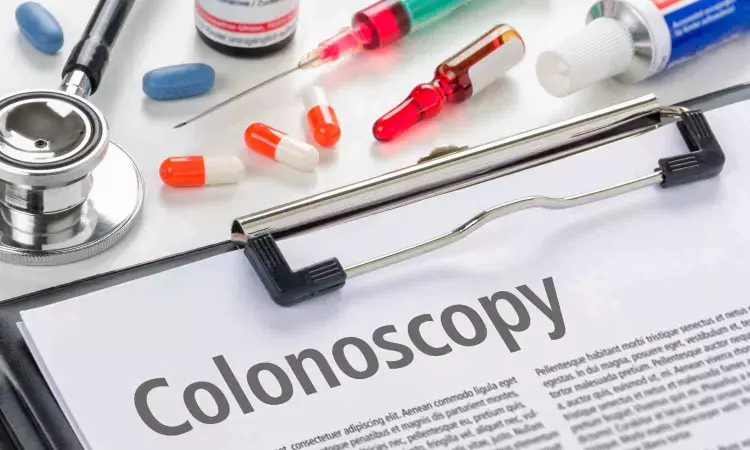- Home
- Medical news & Guidelines
- Anesthesiology
- Cardiology and CTVS
- Critical Care
- Dentistry
- Dermatology
- Diabetes and Endocrinology
- ENT
- Gastroenterology
- Medicine
- Nephrology
- Neurology
- Obstretics-Gynaecology
- Oncology
- Ophthalmology
- Orthopaedics
- Pediatrics-Neonatology
- Psychiatry
- Pulmonology
- Radiology
- Surgery
- Urology
- Laboratory Medicine
- Diet
- Nursing
- Paramedical
- Physiotherapy
- Health news
- Fact Check
- Bone Health Fact Check
- Brain Health Fact Check
- Cancer Related Fact Check
- Child Care Fact Check
- Dental and oral health fact check
- Diabetes and metabolic health fact check
- Diet and Nutrition Fact Check
- Eye and ENT Care Fact Check
- Fitness fact check
- Gut health fact check
- Heart health fact check
- Kidney health fact check
- Medical education fact check
- Men's health fact check
- Respiratory fact check
- Skin and hair care fact check
- Vaccine and Immunization fact check
- Women's health fact check
- AYUSH
- State News
- Andaman and Nicobar Islands
- Andhra Pradesh
- Arunachal Pradesh
- Assam
- Bihar
- Chandigarh
- Chattisgarh
- Dadra and Nagar Haveli
- Daman and Diu
- Delhi
- Goa
- Gujarat
- Haryana
- Himachal Pradesh
- Jammu & Kashmir
- Jharkhand
- Karnataka
- Kerala
- Ladakh
- Lakshadweep
- Madhya Pradesh
- Maharashtra
- Manipur
- Meghalaya
- Mizoram
- Nagaland
- Odisha
- Puducherry
- Punjab
- Rajasthan
- Sikkim
- Tamil Nadu
- Telangana
- Tripura
- Uttar Pradesh
- Uttrakhand
- West Bengal
- Medical Education
- Industry
AI-assisted colonoscopy increases polyp and adenoma detection in routine screening, finds research

A systematic review of randomized clinical trials (RCTs) comparing computer-aided detection (CADe) system-enhanced colonoscopy and conventional colonoscopy found that CADe (also known as artificial Intelligence- or AI-assisted) colonoscopies may increase overall detection of colonic polyps and adenomas, or precancerous growths, with a small increase in procedure time.
Equivocal results were found regarding detection of advanced colonic neoplasia (ACN), with a small increase in ACN detection rate but no difference in ACN detected per colonoscopy. The findings are published in Annals of Internal Medicine.
Researchers from Yale University and Mass General Brigham, Harvard School of Medicine comprehensively searched several large scientific research databases for RCTs comparing colonic lesion detection with standard colonoscopy versus AI-assisted colonoscopy with polyp detection (CADe) systems. The authors compared average adenoma per colonoscopy (APC) and ACN per colonoscopy for both screening methods. Secondarily, they compared adenoma detection rate (ADR), adenoma miss rate (AMR), and ACN detection rate between the two colonoscopy types.
They found that AI-assisted colonoscopy found more polyps and precancerous growths in the colon than conventional colonoscopy. However, AI-assisted colonoscopy detected marginally more serious growths (ACNs) than conventional colonoscopy but was no better than the conventional method at finding ACNs per colonoscopy.
The researchers note that there are no clear differences in benefit for detecting adenomas across different AI systems for CADe, and that there was an increase in benefit for providers with lower adenoma detection rate or those without a prior fecal immunochemical test result. They suggest that future studies focus on interval post colonoscopy colorectal cancer and may consider a study design that randomizes colonoscopists rather than patients.
Reference:
Saeed Soleymanjahi, Jack Huebner, Lina Elmansy, Niroop Rajashekar, Nando Lüdtke, BS, Rumzah Paracha, Rachel Thompson, Artificial Intelligence–Assisted Colonoscopy for Polyp Detection: A Systematic Review and Meta-analysis, Annals of Internal Medicine, https://doi.org/10.7326/ANNALS-24-00981
Dr Kamal Kant Kohli-MBBS, DTCD- a chest specialist with more than 30 years of practice and a flair for writing clinical articles, Dr Kamal Kant Kohli joined Medical Dialogues as a Chief Editor of Medical News. Besides writing articles, as an editor, he proofreads and verifies all the medical content published on Medical Dialogues including those coming from journals, studies,medical conferences,guidelines etc. Email: drkohli@medicaldialogues.in. Contact no. 011-43720751


